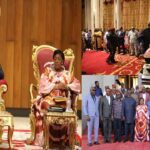In the heart of West Africa lies Liberia, a country with a rich cultural heritage and a vibrant artistic community. However, despite the creative prowess of Liberian artists, they find themselves grappling with the consequences of a weak legal framework and lack enforcement of Intellectual Property Rights (IPR). This article explores the aftermath of Liberian copyright holders and artists whose talents are exploited in political campaigns without a comprehensive understanding of the economic benefits, all within the context of inadequate intellectual property and copyright enforcement.
The Legal Landscape:
Liberia’s Intellectual Property Act attempts to provide a framework for the protection of various intellectual property elements, including copyrights. Encompassing domain names, traditional knowledge, transfer of technology, patents, and copyrights, the act sets the groundwork for safeguarding the creative output of artists. Unfortunately, the effectiveness of these measures is severely hampered by a weak legal structure and regulatory environment.
The Role of Liberia Intellectual Property Office (LIPO):
The Liberia Intellectual Property Office (LIPO) operates as a semi-autonomous agency under the Ministry of Commerce and Industry. While LIPO is tasked with overseeing intellectual property matters, it faces significant challenges. A crucial concern is the lack of technical and professional capacity within the organization, hindering its ability to address infringements effectively. Furthermore, allegations of corruption within LIPO have cast shadows over its credibility, exacerbating the difficulties faced by artists seeking protection for their creations.
Exploitation in Political Campaigns:
One distressing consequence of the weak intellectual property enforcement in Liberia is the unchecked exploitation of artists’ work in political campaigns. Politicians often employ music, visual arts, and other creative works without obtaining proper authorization or compensating the creators. This not only undermines the economic potential of these artists but also reflects a disregard for the fundamental rights of creators.
Economic Impact on Artists:
The economic impact on Liberian artists is profound. When their works are used in political campaigns without due compensation, artists are deprived of income that could contribute to their livelihoods and the growth of the creative industry. Moreover, the lack of awareness among politicians about the economic value of these creative endeavors exacerbates the problem. A robust intellectual property framework would not only protect artists but also encourage the fair and legal use of their works, benefiting both creators and the nation’s cultural landscape.
The Call for Reform:
In light of these challenges, there is a pressing need for comprehensive reform in Liberia’s intellectual property and copyright enforcement mechanisms. Strengthening LIPO’s technical and professional capabilities, addressing corruption allegations, and raising awareness among politicians about the economic impact of using creative works without proper authorization are crucial steps.
Conclusion:
The aftermath of Liberian artists being used in political campaigns without understanding the economic benefits of their talents underscores the urgent need for reform. Strengthening intellectual property rights enforcement, enhancing LIPO’s capacity, and fostering awareness among political leaders can contribute to a more equitable and prosperous future for Liberia’s creative community. As the nation progresses, it is essential to recognize the invaluable contributions of artists and provide them with the protection they deserve.




